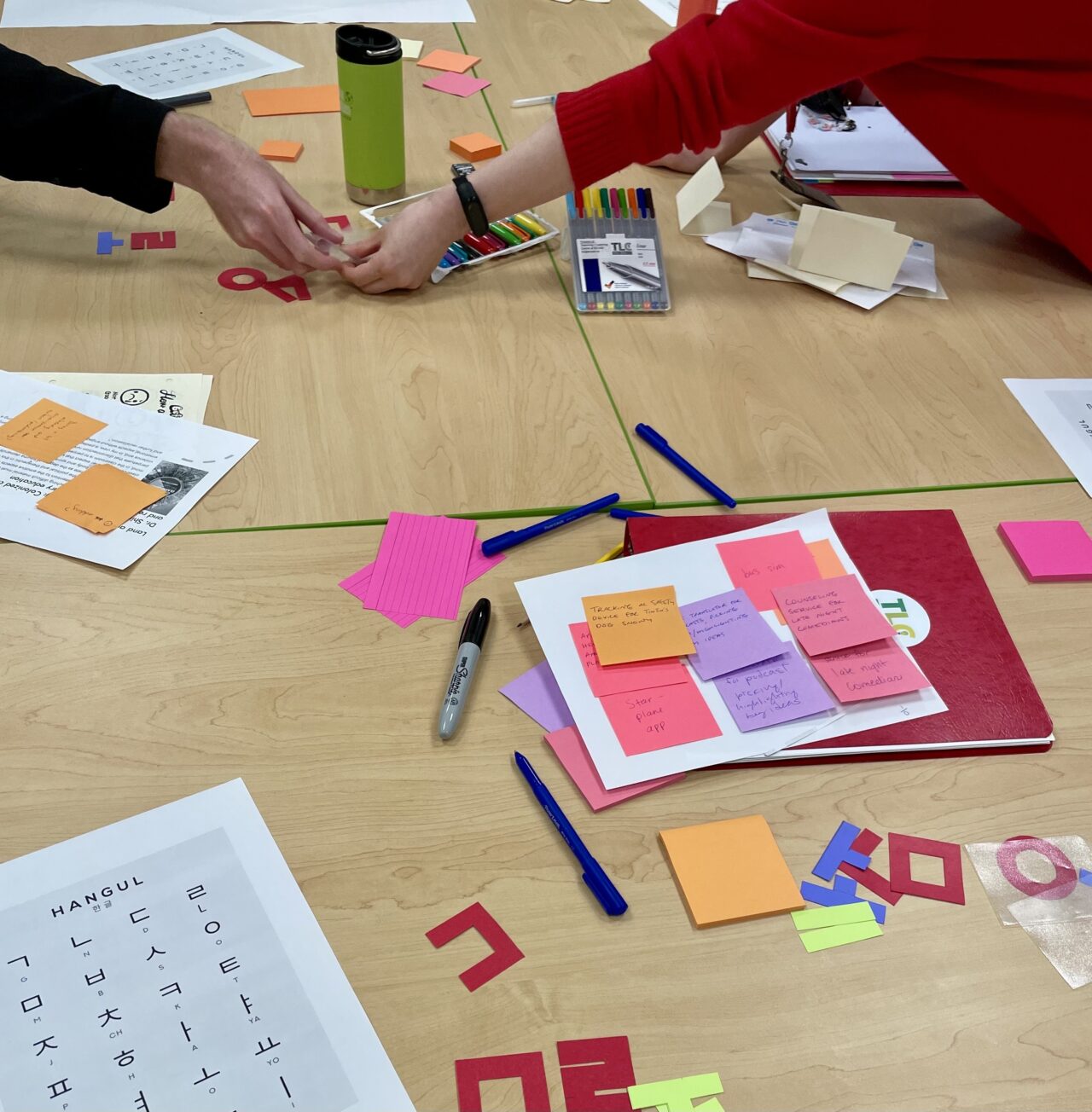What do you learn from an Instructional Skills Workshop?
Posted on | Updated

Hyein Lee's mini-lesson during the fall 2024 ISW
I will confess that when I first heard about the Instructional Skills Workshops (ISW), I was not terribly interested. I had done some formal teacher training through a post-graduate certificate, but I had also been teaching intermittently for years. In my arrogance, I thought: what could I possibly get out of a workshop about teaching skills?
Fast forward five years and I am now a huge champion of the ISW model for new and experienced instructors alike. Because it turns out that ISWs don’t just teach essential and valuable skills (like knowing what good teaching is and how to design for it), they also build a community of feedback and support for what can be, quite frankly, a pretty lonely profession sometimes!
Since we brought the ISW model to ECU, we have “graduated” 45 faculty and graduate students from the program. Read on to see how some of your colleagues and potential colleagues have experienced the workshop. And maybe you’ll be inspired to sign up for our next session over Reading Week – see below for details!
What was the most valuable part of the ISW experience?
- It was a wonderful, collaborative space to explore new teaching strategies in an intentional, reflective manner. The feedback from peer instructors in such an inclusive atmosphere was invaluable! And fun, too. I loved being with instructors and TAs from different faculties. Nessa Palmer
- I wasn’t certain what I would get from the ISW, not knowing a ton about them beforehand. I knew I would be challenged to rethink how I approach lessons (the reason I signed up in the first place). I figured I would give a small lesson and try some new things that I’ve been too nervous to try using in the classroom. However, what I didn’t expect was that I’d learn more from watching other experienced teachers give lessons as well. How often do we get to see each other teaching? See another teacher take risks? Get direct feedback from experienced teachers on our own teaching? Watching experienced instructors try new things was genuinely eye-opening. Jeremy Tankard
- The experience was so enriching: not just in increasing confidence and teaching capabilities, but in building community through a workshop structure based on reciprocity. Throughout, we had opportunities to define our goals as educators and receive generous feedback. This structure allowed for all of us to take risks in a supportive environment, and practice tailoring our teaching to student learning. Ki Wight
- I feel more confident trying new things in the classroom. The mini-lessons I tried at the ISW weren't as radical and chaotic as I feared. Hyein Lee
How has the ISW impacted your teaching?
- It made me feel comfortable and more relaxed about letting students learn by doing & finding their own ways. I didn't know what to do with myself when I gave students studio and/or group activities, and I almost felt guilty not dictating to them with more content/knowledge. But I realized [through the ISW] that learners retain more information with [hands-on] practice and activities than me lecturing at them with excessive content. Hyein Lee
- The ISW allowed me to think about the gaps between what I teach and what is learned. Taking the workshop provided clear and actionable ways to improve my instruction. Nessa Palmer
- I have begun to use ISW as a verb as I prepare my lessons. I sit down to plan and say to myself, “Alright, let’s ISW the sh*t out of this lesson!” And it works every time. I have found new and creative ways to deliver content without having to give lectures or explain concepts. I’ve learned that a well designed lesson puts the learning in the hands of the students – I just have to give them simple instructions, a clear goal and they do all the work with more enthusiasm than I’ve seen in the past. AND, as a bonus, they can always tell me what they learned when they’re finished with the in-class assignment. Jeremy Tankard
- Overall, the ISW model has felt like a fast-track to increasing confidence and skills in my teaching practice, especially my capacity for community-building with colleagues and students, and teaching in engaging and dynamic ways. Ki Wight
Why would you encourage your colleagues to do an ISW?
- I’d encourage anyone who is curious about teaching to take an ISW. Anyone who has had doubts about their teaching skills would benefit. An instructor who wishes to find new approaches to their lessons will benefit. The net result for me has been a simplification in all of my teaching. I have much better-defined learning outcomes and clearer paths to achieving them. Moreover, my students have been more engaged, and we have had much more fun in the classroom together. Jeremy Tankard
- First and foremost, it was A LOT of fun. Are you bored of the repetition of the same courses, semesters, and life? Why not have some fun?! I also feel like I built a closer connection with my colleagues and facilitators. It is a great support system to have. Hyein Lee